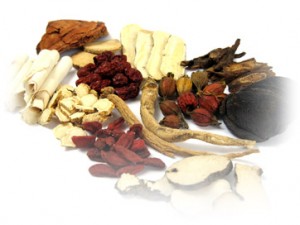A study involving nearly 3,500 women in several countries suggests natural herbs may be more effective in relieving menstrual cramps than drugs, acupuncture or heat compression.
Australia-based researchers said herbs not only relieved pain, but reduced the recurrence of the condition over three months, according to the Cochrane Library journal. Who writes The Cochrane Library Journal? An international not-for-profit and independent organization, dedicated to up-to-date, accurate information about the effects of health-care readily available worldwide.
Who is Cochrane Collaboration? Watch video
The Cochrane Collaboration produces and disseminates systematic reviews of health-care interventions and promotes the search for evidence in the form of clinical trials and other studies of interventions. The Cochrane Collaboration was founded in 1993. They publish the Cochrane Database of Systematic Reviews quarterly as part of the Cochrane Library.
Women looking for a natural treatment for menstrual cramps can be confident that Chinese herbs have been reviewed in clinical trials and have been used safely for hundreds of years. The evidence came from 39 trials, involved 3475 women – 36 in China, and one each in Taiwan, Japan and the Netherlands. Participants were given herb formulas to regulate their ‘qi’ (energy) and blood, warm their bodies and boost their kidney and liver functions.
“Chinese herbal medicine gave significant improvements in pain relief when compared to pharmaceutical drugs. It also reduced overall symptoms. The research revealed that Chinese herbal medicine was also better at alleviating pain than acupuncture or heat compression.”
“All available measures of effectiveness confirmed the overall superiority of Chinese herbal medicine to placebo, no treatment, NSAIDs, OCP, (oral contraception pills) acupuncture and heat compression, and, at the same time, there were no indications that Chinese herbs caused any adverse events,” says lead author Xiaoshu Zhu who works at the Center for Complementary Medicine Research at the University of Western Sydney, Australia.
Some of the Chinese herbs include Chinese angelica root (danggui), Szechuan lovage root (chuanxiong), red peony root (chishao), white peony root (baishao), Chinese motherwort (yimucao), fennel fruit (huixiang), nut-grass rhizome (xiangfu), liquorice root (gancao) and cinnamon bark (rougui). In one trial involving 36 women, 53 percent of those who took Chinese herbs reported less pain than usual compared with 26 percent in the placebo group. (No coincidence these herbs are all included in our PMS Relief Herb Pack)
See Full Study here: http://www.mrw.interscience.wiley.com/cochrane/clsysrev/articles/CD005288/frame.html

 Another day and another friend/mother/sister/daughter diagnosed with breast cancer. Today breast cancer is affecting one in every eight women sometime during their lifetime in the USA, Europe and the UK. Looking around at my friends, family and extended family we need no reminders of the impact of these statistics. But there is good news, actually GREAT news– medical researchers at the Institute of Molecular Biotechnology (IMBA) of the Austrian Academy of Sciences in Vienna identified a key protein that triggers breast cancer and in December 2012 received a grant of $7.4 million from the USA Congressionally Directed Medical Research Program for ongoing research.
Another day and another friend/mother/sister/daughter diagnosed with breast cancer. Today breast cancer is affecting one in every eight women sometime during their lifetime in the USA, Europe and the UK. Looking around at my friends, family and extended family we need no reminders of the impact of these statistics. But there is good news, actually GREAT news– medical researchers at the Institute of Molecular Biotechnology (IMBA) of the Austrian Academy of Sciences in Vienna identified a key protein that triggers breast cancer and in December 2012 received a grant of $7.4 million from the USA Congressionally Directed Medical Research Program for ongoing research.



